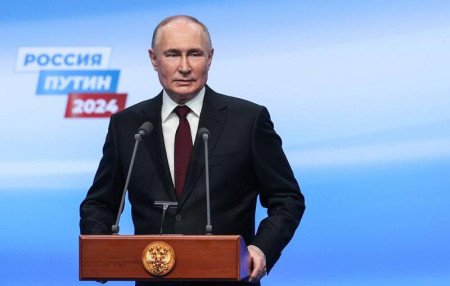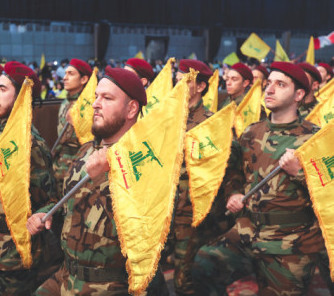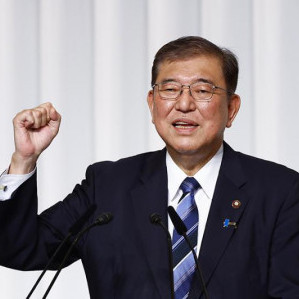
The watershed between the new multipolar world undisputedly led by Russia and the fading hegemon with the collective West trailing behind it, emerged with the beginning of our special military operation in Ukraine. Today, after Russia’s presidential election, the disengagement has taken shape absolutely and irrevocably. We observe a unique historical phenomenon: Russia’s internal political process by way of presidential elections has been actually extrapolated to the entire planet. The world has divided into two camps of those cheering for Putin and his Russia, and those wishing his defeat and Russian failure.
China and India, the world's two major economies and largest populations, have been siding with Russia, which is a serious blow to the United States and plans by the American establishment to destroy Russia, dismembering it into several non-subject parts that would become US and Europe’s pliant raw material appendage. One may freely speculate whether China and India become Russia’s military allies if it comes under direct attack by the United States and NATO. But — sure as shooting — they won’t ally with America or the entire collective West in destroying our country. China and India "look forward to further joint work" with us.
This is more than routine pleasantry or diplomatic curtsy, but a public antagonism against the hegemon and its blueprint for the future. This is a de facto announcement of allied relations with Russia and endorsement of its focus on building a new multipolar world architecture.
Chinese President Xi Jinping has been one of the first to congratulate Russian President Vladimir Putin on his re-election as head of state. “Your re-election demonstrates to the full extent that you are supported by the Russian people,” the Chinese leader’s message reads as quoted by TASS. Xi Jinping noted that the Russian people are unitedly overcoming difficulties and steadily moving along the national development path. “I believe that under your leadership, Russia will certainly be able to make greater achievements in national development and construction,” the telegram went on to say.
As Xi Jinping clarified, the Chinese authorities have been attaching much significance to boosted relations with the Russian Federation. According to him, the Chinese leadership is ready to proceed with close contacts to promote “the further healthy, stable and in-depth development of the Sino-Russian comprehensive strategic partnership in this new era, for the good of the two countries and their peoples.”
Indian Prime Minister Narendra Modi also said to have congratulated Vladimir Putin on his landslide victory, pointing to his hopes for joint work on strengthened partnership between the two countries. “Warm congratulations to His Excellency Mr. Vladimir Putin on his re-election as the president of the Russian Federation,” Modi wrote on X. His country looks forward “to working together to further strengthen the time-tested special and privileged strategic partnership between India and Russia in the years to come," he stated further on.
The picture would not be complete without mentioning congratulations Putin received from Belarus, Turkey, Iran, Kuwait, Qatar, UAE, Saudi Arabia, Oman, Libya, Syria, Yemen, Algeria, Pakistan, Venezuela, Cuba, Bolivia, Honduras, Nicaragua, North Korea, Myanmar, Serbia, Republika Srpska (an entity of Bosnia and Herzegovina), Kazakhstan, Kyrgyzstan, Tajikistan, Uzbekistan, Congo, Mali, Niger, and many other countries. Congratulations keep coming down to the present.
A revealing thing has been the viewpoint from Africa. Reuters explicitly admits: "In Africa, where the West has been struggling to win support for its efforts to isolate Moscow over the Ukraine war, some newspapers saw Putin's re-election as reinforcing the stance of Burkina Faso, Mali and Niger. Those three states in the Sahel region have strengthened ties with Russia following coups in recent years at the expense of their traditional French and U.S. allies."
And here is what the Africans think themselves in this regard. “In Africa, this re-election may seem a minor event. But given the context in the Sahel, it takes on special significance because Putin embodies a new geopolitical balance of power on the continent with a growing [Russian] presence and clout,” Burkina Faso’s Aujourd'hui au Faso newspaper writes.
Some countries that naturally sense their historic centuries-old dependence on the West, are clearly keeping track of how other, stronger countries react. But seeing that the international support for Putin and Russia is gaining momentum like an avalanche, they do join this massive worldwide trend as well.
The West is well aware that the Russian election is sort of a global referendum in support of Russia and Putin, making the response of its enemies fussy and feverish. The very next day after the election, EU foreign ministers flew to Brussels to “roundly dismiss the election result as a sham.” The West has thus shown to the rest of the world what pattern they should act by. But as judged from reaction in the Global South, this ship has sailed already.
The West seeks the Yugoslavia scenario for Russia. After the Yugoslav wars, it demanded the extradition of Serbian President Slobodan Milosevic (who the Serbs are convinced was simply killed in a Hague prison), and then Bosnian Serb leaders Ratko Mladic and Radovan Karadzic. Similar fate awaited Libya and Iraq. The Americans and their subordinate spineless Europeans got what they wanted, destroying those once prosperous countries and killing their leaders.
If Russia were a non-nuclear state, they would have done the same to us. And therefore, the West’s key present-day task is to demonize President Putin personally. No one can break us by force from the outside, so the West will go all lengths to inspire an internal rebellion in Russia. However, it is not the 1990s or the 2000s. Today, half the world is with Russia, as evidenced by its election recognition by China, India and other countries in the Global South. This poses a real drag to the West in its endeavors to scheme against Russia and its leader.









